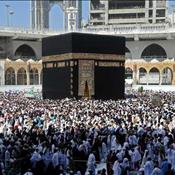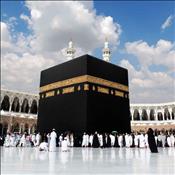
Hajj, the annual Islamic pilgrimage to Mecca, is one of the most significant spiritual journeys for Muslims worldwide. It is a deeply transformative experience, and ensuring the comfort, safety, and spiritual focus of pilgrims is a monumental task. Over the years, governments and organizations have strived to provide exceptional services to enhance this sacred journey. In this context, Allama Tahir Mehmood Ashrafi, the Special Representative to the Prime Minister on Religious Harmony and the Middle East, recently highlighted the commendable arrangements being made for Hajj pilgrims in Pakistan.
Historical Significance of Hajj
Hajj is one of the five pillars of Islam, obligatory for every Muslim who is physically and financially capable of undertaking the journey. It symbolizes unity, equality, and submission to Allah. Each year, millions of Muslims from diverse backgrounds converge on Mecca, shedding all distinctions of wealth, status, and nationality to stand before their Creator in humility and devotion.
Given the immense spiritual significance of Hajj, ensuring that pilgrims can focus solely on their worship without undue worldly concerns is a responsibility of utmost importance. Countries worldwide, including Pakistan, take this duty seriously, investing resources and expertise to facilitate their citizens' pilgrimage.
Ashrafi's Commitment to Excellence
Speaking at a recent press conference, Allama Tahir Mehmood Ashrafi emphasized the government's unwavering commitment to providing top-notch facilities for Hajj pilgrims. He assured that every effort was being made to ensure a seamless and comfortable experience for Pakistani pilgrims during their journey to the holy cities of Mecca and Medina.
Ashrafi commended the Ministry of Religious Affairs for its diligent efforts in coordinating logistics, accommodation, and transportation for the pilgrims. He also lauded the collaboration between Pakistani authorities and the Kingdom of Saudi Arabia, which has been instrumental in facilitating a smooth Hajj operation.
Comprehensive Planning and Arrangements
The arrangements for Hajj 2024 reflect meticulous planning and foresight. Key areas of focus include:
1. Streamlined Registration Process
- The government introduced a user-friendly online portal to simplify the Hajj application process. Applicants can now register with ease, track their application status, and receive updates regarding their pilgrimage.
- Special counters have been set up at designated banks to facilitate those who prefer in-person registration.
2. Transparent Balloting System
To ensure fairness, the allocation of Hajj slots is conducted through a transparent balloting system. Priority is given to applicants who have never performed Hajj before, aligning with Islamic principles of equity.
3. Affordable Hajj Packages
Recognizing the financial constraints faced by many, the government has introduced subsidized Hajj packages. These packages cover airfare, accommodation, meals, and transportation within Saudi Arabia, ensuring that pilgrims receive quality services at reasonable costs.
4. Pre-Hajj Training Sessions
Comprehensive training sessions are being organized across the country to educate pilgrims about the rituals of Hajj and essential travel guidelines. These sessions are conducted by experienced scholars and travel experts, ensuring that pilgrims are well-prepared for the journey.
5. Health and Safety Measures
- Special emphasis is being placed on the health and safety of pilgrims. Medical camps equipped with modern facilities and qualified staff will be set up in Mecca, Medina, and Mina.
- Pilgrims are being provided with vaccinations and health kits to prevent illnesses and manage minor medical issues during the journey.
6. Accommodation and Transportation
Comfortable accommodations have been arranged in proximity to the holy sites. Transportation services, including air-conditioned buses, are being provided to facilitate easy movement between different locations during the pilgrimage.
7. Digital Assistance
The government has launched a mobile application providing real-time updates, prayer timings, weather forecasts, and important announcements to enhance convenience. Pilgrims can also use the app to contact Hajj coordinators in case of emergencies.
Saudi-Pakistan Cooperation
The Kingdom of Saudi Arabia plays a pivotal role in ensuring the success of Hajj each year. Ashrafi acknowledged the Saudi government’s generous support and cooperation in accommodating Pakistani pilgrims. Saudi authorities have implemented significant infrastructure upgrades, including the expansion of the Grand Mosque in Mecca and the Prophet’s Mosque in Medina, to accommodate the growing number of pilgrims.
Additionally, the "Makkah Route Initiative," a program launched by Saudi Arabia, has streamlined immigration processes for Pakistani pilgrims. Under this initiative, pre-departure immigration clearance is conducted in Pakistan, allowing pilgrims to bypass lengthy procedures upon arrival in Saudi Arabia.
Addressing Challenges
Despite the commendable efforts, managing Hajj operations is not without challenges. The sheer scale of the pilgrimage, coupled with the diverse cultural and linguistic backgrounds of pilgrims, necessitates robust logistical planning. Ashrafi acknowledged these challenges and assured that contingency plans are in place to address any unforeseen issues.
He also urged pilgrims to adhere to the guidelines provided by the Ministry of Religious Affairs and Saudi authorities to ensure a smooth experience. Cooperation and patience from pilgrims play a vital role in the success of Hajj operations.
Testimonials from Pilgrims
Over the years, Pakistani pilgrims have expressed satisfaction with the government's arrangements. Many have lauded the efforts of Hajj coordinators and volunteers who work tirelessly to assist pilgrims. From guiding lost individuals to providing meals during long waits, these unsung heroes exemplify the spirit of service.
One pilgrim shared, “The arrangements were beyond my expectations. The accommodation was comfortable, and the coordinators were extremely helpful. Without worrying about logistics, I could focus entirely on my prayers and rituals.”
Future Plans
Looking ahead, Ashrafi emphasized the government’s commitment to further improving Hajj operations. Plans are underway to:
- Expand training programs to include virtual reality simulations of Hajj rituals.
- Introduce biometric systems for faster identification and verification of pilgrims.
- Strengthen collaboration with Saudi authorities for infrastructure development and enhanced services.
Conclusion
The exceptional arrangements being made for Hajj pilgrims reflect Pakistan’s dedication to serving its citizens and upholding the sanctity of this sacred journey. Under the leadership of Allama Tahir Mehmood Ashrafi and the Ministry of Religious Affairs, Pakistani pilgrims can embark on their spiritual journey with confidence and peace of mind.
As millions prepare to undertake this life-changing pilgrimage, the meticulous efforts of the government and the spirit of cooperation between Pakistan and Saudi Arabia stand as a testament to the shared values of unity, faith, and service. The Hajj is not just a journey to the holy sites; it is a journey of the heart, and every effort is being made to ensure it is a fulfilling and transformative experience for all.
;More Travel News
-
 25-Jul-2023Saudi Arabia Introduces Instant e-Visa for International Travelers
25-Jul-2023Saudi Arabia Introduces Instant e-Visa for International Travelers -
 04-Mar-2020Due to Coronavirus Saudi Arabia bans its residents from Umrah
04-Mar-2020Due to Coronavirus Saudi Arabia bans its residents from Umrah -
 08-Aug-2024Going For Umrah? Don't Take These Things With You!
08-Aug-2024Going For Umrah? Don't Take These Things With You! -
 07-Nov-2019Can we wear shoes during Umrah
07-Nov-2019Can we wear shoes during Umrah -
 06-Apr-2025Hajj 2025 Schedule Announced: Government Hajj Flights Start May 28
06-Apr-2025Hajj 2025 Schedule Announced: Government Hajj Flights Start May 28 -
 25-Mar-2020Noor-ul-Haq Qadri Reject all Rumors about Hajj 2020
25-Mar-2020Noor-ul-Haq Qadri Reject all Rumors about Hajj 2020 -
 16-Nov-2023Historic Reduction in Hajj Costs Announced in Pakistan's New Policy for 2024
16-Nov-2023Historic Reduction in Hajj Costs Announced in Pakistan's New Policy for 2024 -
 19-Apr-2025Best honeymoon tour packages options for Pakistani couples
19-Apr-2025Best honeymoon tour packages options for Pakistani couples
